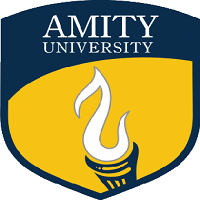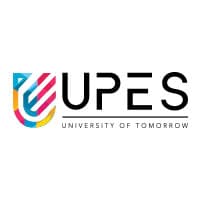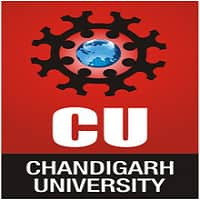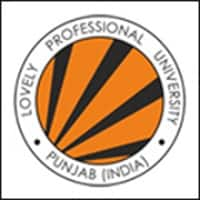Sanskriti University B.A Admissions 2025
Best innovation and research-driven university of Uttar Pradesh
The Bachelor of Vocational Studies in Automobiles is a three-year undergraduate degree that aims to provide students with knowledge in the field of automotive engineering. It covers a wide range of topics related to automobile design, manufacture, maintenance, and repair, preparing students for careers in the automotive industry.
To be eligible for the BVoc in Automobiles, students need to have completed their higher secondary education (10+2) from a recognised educational board preferably in the science stream. Graduates from the course can work as automobile engineers, automotive technicians, quality control inspectors, or service advisors in automobile manufacturing companies.
Top recruiters in this industry include automobile companies like Maruti Suzuki, Tata Motors, and Mahindra & Mahindra. Throughout the course, students study various automobile systems, including engines, gearboxes, and electrical systems. They also gain experience in diagnosing and resolving automotive issues. The average BVoc Automobiles fee is anywhere between Rs. 16,000 to Rs. 2.0 lakhs.
Particular | Values |
|---|---|
Course Name | BVoc Automobiles |
Course Duration | 3 years |
Eligibility Criteria | 12th standard pass or 10th+ITI |
Admission Process | Merit-Based |
| Average Course Fees | Rs. 16,000 to Rs. 2.0 lakhs |
Average Salary | Rs. 3.5 Lakhs |
Top Companies | Maruti Suzuki, Tata Motors, Mahindra & Mahindra, Hyundai Motors, Bajaj Auto, Bosch, Continental, Delphi Technologies, Minda Industries, Motherson Sumi Wiring India |
Job Positions | Quality Control Inspector, Sales Engineer, Customer Relationship Manager, Vehicle Mechanics |
The eligibility for Bachelor of Vocational Studies in Automobiles differs according to the institution that offers the programme. To be eligible to pursue a Bachelor of Vocational Studies in Automobiles, candidates must normally fulfil the following requirements:
Candidates must have passed the 10+2 with any stream.
Some colleges and universities also demand the Science stream only.
or
Candidates who have a 10th+ITI diploma with a minimum of two years from any recognised board are also eligible to apply.
The admission process for BVoc Automobiles is a series of steps designed to evaluate a candidate's aptitude. The admission process for the BVoc Automobiles involves the following steps:
Applicants need to apply to the appropriate institution either offline or online.
They need to submit their certifications, transcripts, and other required documentation for verification.
Those who have been shortlisted based on qualifying merit are invited to an interview.
Admission decisions consider a candidate's prior academic standing, performance in the interview, and relevant work experience.
The institution releases a merit list of selected candidates after considering the results of the entire evaluation.
Candidates seeking a Bachelor of Vocational Studies in Automobiles must possess a certain set of abilities to succeed both academically and professionally. The following list includes some of the necessary competencies:
Problem-solving
Analytical thinking
Team collaboration
Communication skills
Attention to detail
Innovation mindset
The BVoc Automobile programme prepares candidates for the automotive industry. It focuses on both theoretical knowledge and practical skills. The curriculum covers core subjects alongside hands-on workshops. For the convenience of the candidates, we have provided the syllabus for the BVoc Automobile at Guru Gobind Singh Indraprastha University.
Semester 1 | |
Elements of Automobile Engineering | Manufacturing Technology |
Communication Skills | Basics of Electrical & Electronic Engineering/Urban Transport Requirement & Planning |
Human Values and Professional Ethics/Life Skills/Personality Development & Behavioural Science | Basics of Electrical & Electronic Engineering Lab/Case Study-Urban Transport Requirement & Planning Lab |
Elements of Automobile Engineering Lab | Manufacturing Technology Lab |
Basic Programming Lab | Vocation Workshop |
Semester 2 | |
Engineering Materials & Mechanics of Solids | Automobile Servicing and Maintenance |
Environmental Sciences | Elements of Fluid Mechanics & Machines/Elements of Aesthetics Design of Devices |
Elements of Fluid Mechanics & Machines Lab/Elements of Aesthetics Design of Devices Lab | Engineering Materials & Mechanics of Solids Lab |
Automobile Servicing & Maintenance Lab | Environmental Science Lab / Field work |
Project | Industrial Training |
Graphics For Automobile Engineering | |
Semester 3 | |
Thermal Engineering | Chassis Body and Transmission |
Instruments and Equipment | Automotive Components Design |
Energy Sources for Automobiles | Theory of Machines/Industrial Pollution Prevention and Control/Industrial Management |
Thermal Engineering Lab | Chassis Body & Transmission Lab |
Instruments and Equipment Lab | Industrial Training-II |
Semester 4 | |
Internal Combustion Engines | Alternative Fuels & Pollution Control |
Tractors, Farm Equipment and Off-Road Vehicles | Global Warming & Climate Change/Entrepreneurship Development and Planning |
Vehicle Transport Management Lab/Tyre Technology Lab | Internal Combustion Engines Lab |
Alternative Fuels & Pollution Control Lab | Industrial Training-III |
Project-II | |
Semester 5 | |
Technical English | Vehicle Body Engineering |
Corrosion Prevention & Vehicle Body Paint Technology/Elements of Noise, Vibration & Harshness Control | Modern Vehicle Technology/Mechanics of Vehicles |
NCC/NSS/Sports/Community Services/ECO Club/YOGA | Corrosion Prevention & Vehicle Body Paint Technology Lab/Elements of Noise, Vibration & Harshness Control Lab |
Modern Vehicle Technology Lab/Mechanics of Vehicles Lab | Language Lab |
Vehicle Body Engineering Lab | Minor Project |
Semester 6 | |
Automotive Electricals & Electronic System | Electric and Hybrid Vehicles/Automobile Refrigeration & Air Conditioning |
Vehicle Safety Engineering/Autotronics | Electric and Hybrid Vehicles Lab/Automobile Refrigeration & Air Conditioning Lab |
Automotive Electricals & Electronic System Lab | Industrial Training-V |
Major Project | - |
The fee structure for the Bachelor of Vocational Studies in Automobiles varies among institutions and can range from Rs. 16,000 to Rs. 2.0 lakhs. Additionally, there are potential additional costs such as accommodation and other related expenses. Financial aid options and scholarships are also available to students in many colleges.
A Bachelor of Vocational Studies in Automobiles provides numerous job opportunities in the automobile industry. Graduates can pursue careers in automotive production, maintenance, sales, and research. With specialised talents in automotive engineering and technology, they contribute to innovation, vehicle design, and improvements in the automotive industry, providing exciting possibilities for car enthusiasts.
There are various opportunities in the automobile business. Candidates can select from a variety of employment profiles, ranging from technical to non-technical. Below is a summary of some common job profiles that they can go for:
Quality Control Inspector: Quality Control Inspector upholds quality standards in the auto industry by examining parts and completed cars. They conduct thorough examinations to guarantee that cars fulfil safety and performance requirements.
Sales Engineer: Sales Engineer makes use of technical expertise to offer consumers cars, auto parts, or accessories. An automotive sales engineer markets and sells consumers vehicles, parts, or accessories by utilising their technical expertise.
Customer Relationship Manager (CRM): Customer Relationship Manager establishes connections with clients in the automobile sector. They use customer data to cultivate connections, increase car and service sales, and guarantee client happiness.
Graduates of the BVoc Automobiles programme can pursue employment prospects in a variety of top businesses. Some significant companies that actively employ specialists in the industry are:
Maruti Suzuki
Tata Motors
Mahindra & Mahindra
Hyundai Motors
Bajaj Auto
Bosch
Continental
Delphi Technologies
Minda Industries
Motherson Sumi Wiring India
There are various benefits to pursuing a Bachelor of Vocational Studies in Automobiles. It provides students with in-depth knowledge of automotive engineering and technology, equipping them for a variety of careers in the auto industry.
The BVoc Automobiles degree prepares students with practical skills in vehicle design, manufacture, maintenance, and sales. This sets them up for a successful career in the automotive industry. Graduates emerge with a strong foundation in hands-on experience, ready to excel in various roles within the field.
The salary of candidates after a Bachelor in Vocation in Automobile can be computed based on the candidate's skills, location of employment, and job profile. The starting wage is smaller, but as the individual learns and develops experience, the salary improves.
Job Profile | Average Salary |
|---|---|
Quality Control Inspector | Rs. 2.9 LPA |
Sales Engineer | Rs. 4.6 LPA |
CRM Manager | Rs. 6.0 LPA |
Vehicle Mechanic | Rs. 3.2 LPA |
Source: AmbitionBox
Several Indian universities provide BVoc Automobile courses. Bachelor in Vocation in Automobile institutions provide numerous benefits. Some of India's leading institutions that provide a Bachelor in Vocation in Automobile include:
Colleges | Fees |
|---|---|
Rs. 90,000 | |
- | |
Rs. 16,850 | |
Rs. 22,950 | |
- | |
- | |
Compared to private colleges, government-run colleges are less expensive to attend. Some of the top government colleges that offer BVoc Automobile with their respective fees are mentioned in the following table:
| Colleges | Fees |
|---|---|
YMCA, Faridabad | Rs. 90,000 |
GGSIPU Delhi | - |
DEI Agra | Rs. 16,850 |
Bharathiar University | - |
VSU Jaipur | - |
Compared to government colleges, private colleges are expensive to attend. Some of the top private colleges that offer BVoc Automobile with their respective fees are mentioned in the following table:
Colleges | Fees |
|---|---|
Shri Krishna University, Chhatarpur | - |
Debra Thana Sahid Kshudiram Smriti Mahavidyalaya, Debra | Rs. 22,950 |
Candidates must have passed the 10+2 with any stream to be eligible. Those who have 10th+ITI with a minimum of two years passed from any recognised board are also eligible for the programme.
An essential component of the curriculum is workshop practice, which gives students practical expertise in electrical system troubleshooting, brake servicing, and engine disassembly and reassembly.
Graduates can find employment in a variety of industries, including R&D departments, automotive service centres, vehicle manufacturing firms, and component manufacturing facilities.
Careers in this field are those of customer service representatives, sales engineers, production supervisors, quality control inspectors, vehicle mechanics, and service technicians.
This degree provides education with an industry focus and improves employability in the expanding automotive industry. It enables candidates to advance their careers through specialisation.
Starting salaries might vary based on region, career path chosen, and experience. They usually range from Rs. 3 lakhs to Rs. 4.5 lakhs annually.
Application Date:17 March,2025 - 07 May,2025
Hello,
As a Agriculture student, you may be eligible for an MSc in agriculture, depending on the universitys specific admission criteria. most universities require a relevant undergraduate degree in agriculture or a related field. its important to check the eligibility requirements of the university you wish to apply to.
To change from B.Voc Physiotherapy to B.P.T.:
1. Check eligibility and institution requirements.
2. Contact your current institution about lateral entry.
3. Apply for admission and entrance exams (if required).
4. Complete the admission process.
Alternatively, complete B.Voc and pursue M.P.T. for advanced knowledge.
hi there ,
Pursuing a Master of Vocation (M.Voc) in Gemmology in India is a specialized endeavor, and currently, there are limited institutions offering this specific program. One notable institution providing an M.Voc in Gemmology is the Indian Institute of Gems and Jewellery (IIGJ), Jaipur.
Indian Institute of Gems and Jewellery (IIGJ), Jaipur:
While the M.Voc in Gemmology is not widely available, several institutions offer related postgraduate programs and diplomas in gemmology:
University of Mysore:
St. Xavier's College (Autonomous), Mumbai:
Indian Institute of Gemology (IIG), Mumbai:
Gemological Institute of America (GIA), Mumbai:
hope this helps
Hello there,
Lingaya’s Vidyapeeth is a UGC-recognized university. However, for Maharashtra government counseling or eligibility for government jobs, it is essential to check if the university and your BVoc (Operation Theater Technology) course are approved by the relevant state authorities like the Maharashtra State Council of Paramedical Education or similar bodies.
You should verify:
Contact the university or the Maharashtra health education board for confirmation.
I hope this answer helps you. If you have more queries then feel free to share your questions with us we will be happy to assist you.
Thank you and wishing you all the best for your bright future.
You will have to check the eligibility criteria of different colleges offering M.Sc. in Nuclear Medicine Technology. Straight entry opportunities exist for a B.Sc. in Radiotherapy and Radiology, but not necessarily all M.Sc. courses with a B.Voc. in Radiology Technology.
Here are some options:
1. Direct Admission:
Contact Colleges: Contact colleges offering M.Sc. in Nuclear Medicine Technology and ask for eligibility through a B.Voc. Many colleges may consider your practical exposure and marks.
Entrance Exams: A diploma candidate can opt for entrance exams like GATE or any entrance exam of the college/university. A good score will boost possibilities to get admissions.
2. Diploma in Nuclear Medicine Technology:
Consider diploma in Nuclear Medicine Technology. This can bridge the gap between the B.Voc. and M.Sc. requirements.
3. Research and Networking:
Stay informed about admissions as well as the latest information about eligibility criteria.
Network with professionals who can give good insights as well as guidance.
Scouting research or internship opportunities to add value to your profile.
Here are some of the repute M.Sc. institutions in India offering Nuclear Medicine Technology:
All India Institute of Medical Sciences (AIIMS), New Delhi
Post Graduate Institute of Medical Education and Research (PGIMER), Chandigarh
Tata Memorial Centre, Mumbai
Bhabha Atomic Research Centre (BARC), Mumbai
Manipal Academy of Higher Education, Manipal
Always verify the eligibility criteria as well as the admission procedure of each college to which you plan to apply.

Ranked amongst the top 3% of universities globally (QS Rankings)

Ranked #46 amongst Universities in India by NIRF | 1900+ Students Placed | 94% Placement | 633+ Recruiters

Ranked #1 Among all Private Indian Universities in QS Asia Rankings 2025 | Scholarships worth 210 CR

India's Largest University | NAAC A++ | 100% Placements Record | Highest CTC 2.5 Cr PA | 145 + Programmes in 55+ Disciplines | End Date : 15th Apr’25
100+ Industry collaborations | 10+ Years of legacy
Accorded Institution of Eminence by Govt of India, NAAC A++ Accredited, Ranked #4 by NIRF 2024